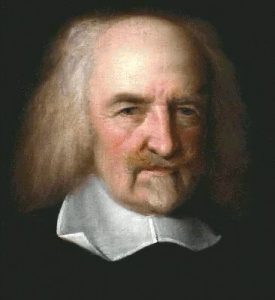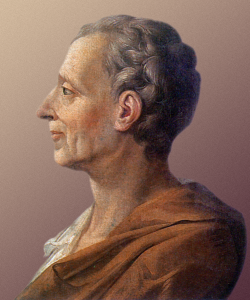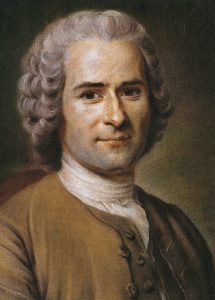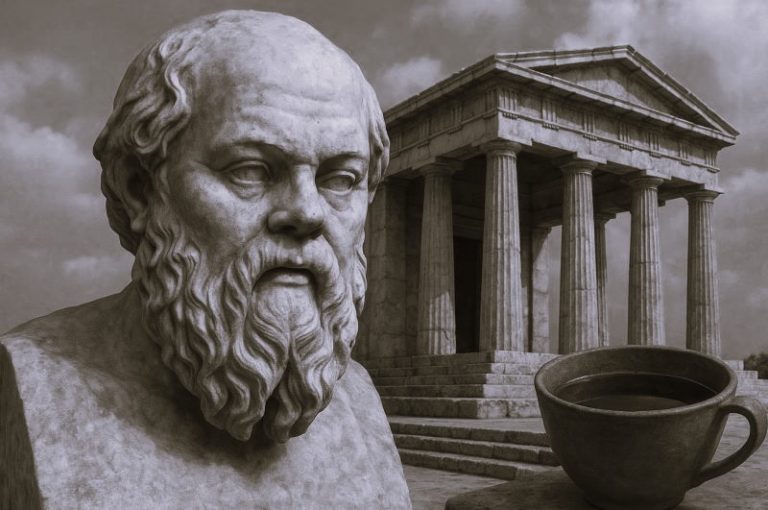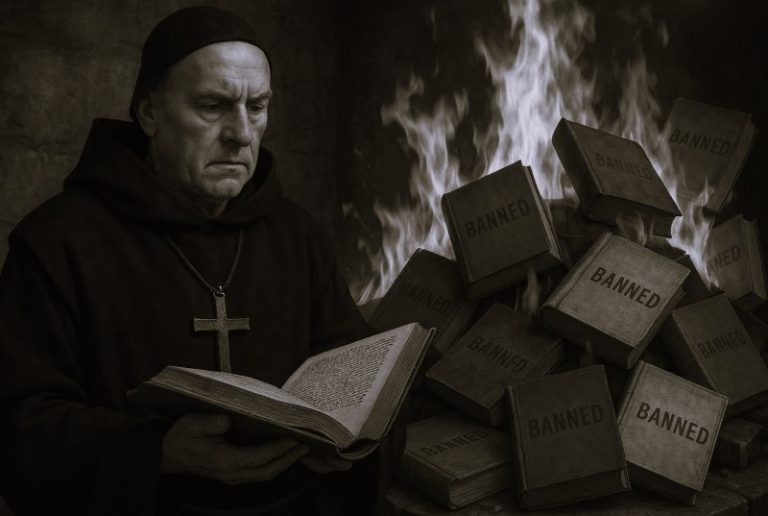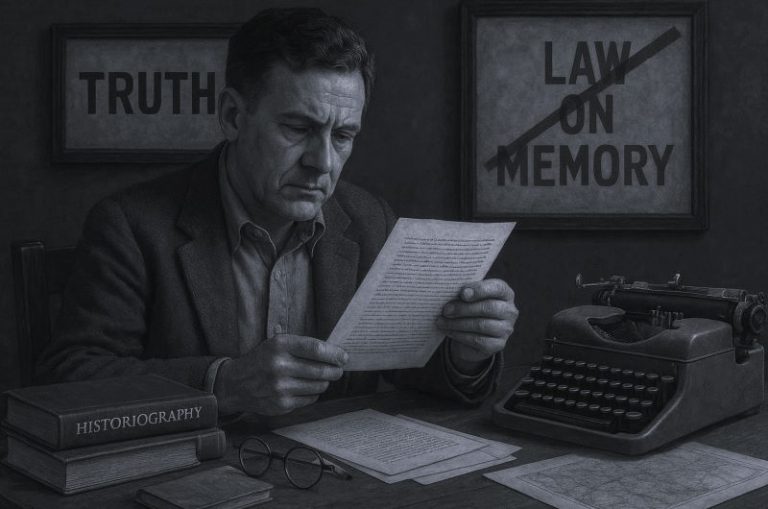Auguste Comte, Émile Durkheim, Karl Marx and Max Weber
By Dr. Iván Szelényi / 09.03.2008
Professor Emeritus of Sociology
Yale University
Introduction: An Interdisciplinary Approach
I am going to introduce you to some of the Founding Fathers–I’m afraid they are all fathers right, no mothers among them; I will tell you why not–of modern social thought. It’s basically theories, starting from the sixteenth century and ending up in the early twentieth century.
The first author on our list, Thomas Hobbes, did a lot of work on optics and has been in a violent controversy with Descartes. So those of you who are in natural sciences are probably familiar with Descartes and his pioneering work on optics. John Locke, for those of you who aspire to become a doctor, was actually studying medicine and performed a surgery on a very well-known English politician. A quite successful surgery, though even today doctors quite don’t know whether this politician survived because of good luck or because of the surgery.
In the early sixteenth, seventeenth, eighteenth centuries, sciences and social sciences are not separated from each other yet. Jean Jacques Rousseau, a real pain in the neck but an extremely smart guy, he also wrote an important book which dealt with sciences and social studies. It’s really by the kind of late eighteenth century that people are beginning to identify as studying society or human behavior. But even then, until the very last author–what we have here, Emile Durkheim–people identified themselves with a number of approaches, disciplinary approaches. There were social scientists, all right, or philosophers, all right. The difference between philosophy and social science is a very vague one. So they’re beginning to distinguish themselves increasingly from sciences, but they are still multidisciplinary.
Who is Karl Marx, you know? He is a philosopher. He’s an economist. He is a political scientist. Sociologists name him as one of the Founding Fathers of sociology. Max Weber, he identified himself as a legal theorist. He was studying economic history. I think primarily he identified himself, early in life, as an economist, as an economic historian; later in life he began to call himself a sociologist.
Hobbes: The Troublemaker
Portrait of Thomas Hobbes, by John Michael Wright, 1669-1670, oil on canvas / National Portrait Gallery, London
So this is Thomas Hobbes, born in 1588. Well, Hobbes had a bit of a troubled childhood–a difficult father who was a clergyman, got into a fight with another clergyman and had to disappear. He had a fight actually in a cemetery, which in the sixteenth century was no-no, especially for a clergyman. Anyway, he grew up with uncles. Nevertheless, he got to the University of Oxford, did pretty good, and became a tutor of William Cavendish, and then traveled with him to Europe, France, and Italy, and he met Galileo and was greatly influenced by Galileo. At that time in English universities, they were mainly teaching Aristotle, and well Hobbes became very disenchanted with Aristotle, the dogmatism of Aristotle’s philosophy, and he was enthralled by the emergence of new positive science, what Galileo represented.
Then he came back in England, and there were very turbulent politics; I will talk about this greater in the course. And he was among those, as a conservative guy–if you are Republican you will love it–he sided with the king against the parliament. And since he did that in 1640, he better skipped and went to France, into exile, and then returned in ’51 to England. Because he was a troublemaker, he was not only in conflict with the Republicans, he was also in conflict with the Royalists. He died in 1679. Now his first work was a translation of Thucydides. He liked Thucydides because he thought Thucydides showed why democracy doesn’t work. Right? He’s an absolutist, Hobbes: a conservative, absolutist.
And then he wrote an interesting trilogy, and this again shows the unity of sciences and social sciences. The first volume deals with the human body, with biology. The second works on the individual; it is really psychology. And the last one works on society and politics. And he thinks the way how to understand human existence is start with bodily functions, and move from bodily functions to politics and philosophy. And then his major work is Leviathan. This is the work probably most of you’ve heard the title of. And this was actually at a time when Charles I was already executed, and he actually was considering there should be a possibility to transfer loyalty to a new ruler–what the Royalists, fellow Royalists, all in exile in Paris, didn’t like. So now he had to escape Paris, to escape the anger of the Royalists. This is the First Edition of the Leviathan, one of the most influential books in politics ever written.
Well not a very attractive book. The main theme is that in the state of nature–naturally by human nature, people are quite evil, and therefore order has to be imposed over people above each other; otherwise there would be a war–we would be in a state of war of everyone against everyone. This is the major citation from Leviathan; that’s what everybody knows. Right?
Locke’s Separation of Powers
Portrait of John Locke, by Sir Godfrey Kneller, 1697, oil on canvas / National Portrait Gallery, London
Okay, John Locke is the next, born half a century later–also a British scientist. He came from a minor gentry family. He also studied at Oxford–philosophy and, as I said, medicine was also his second major. Early on, he was very much attracted to Hobbes, but then he met a major British politician, Shaftesbury. He performed a liver operation on him, assumedly saving his life. And then he changed course from a conservative and became sort of a Republican; or by American political standards he shifted from the Republican Party to the Democratic Party, that’s what he did. Right?
Well, in fact, he was even involved in [1682]’82 in a plot to overthrow Absolutism, and he had to escape to the Netherlands–returned in ’89 to London, and died a few years later. Well his conservative work was in ’64–his address at the college in which he actually offered a Hobbesian thesis: Kings are gods and the people are beasts. But then he changed completely. He already writes an important paper on toleration. Liberals are still reading it. And especially he writes the Two Treatises, which is a major foundation work for modern democratic theory–a major foundation work for the American Constitution as well. This is the First Edition of it. So what are the main points? He said, well, men are born free and equal, and in the state of nature they are good. There is a need for a superior, but a superior can also be accepted by the consent of everybody who is subjected to authority. And he is the first political theorist who advocates the separation of powers and has a major impact, together with Jean Jacques Rousseau, on the foundation of the American Constitution–this is where the American Constitution comes from.
The Adventurous Life and Work of Montesquieu
Portrait of Montesquieu, 1728, oil on canvas / Palace of Versailles
Now we move from England to France, to Montesquieu, who was born in the late seventeenth century and lived in the kind of already swinging eighteenth century. The eighteenth century was essentially, at least in France, fun to live in. Well it was a lot of turbulence, but interpersonal relationships were quite interesting, you’d say. It reminds me of the 1960s, hobbies and hippies and whatever. Right? So before the French Revolution you had the 1960s kind of stuff. Well there was not marijuana, but there was a lot of various kinds of sex which made the eighteenth century quite fun.
And the life of Montesquieu made it quite fun. Well he was born in the right place, near Bordeaux, where the good wine is grown, bread. His name was actually Charles-Louis de Secondat, and he became Montesquieu when his uncle died and he inherited the title of Baron de Montesquieu from him. He studied Law. He’s a major legal theorist. Anyone of you who is heading to law school will have to take this course because the theory of law starts with Montesquieu. Anyway, he studied at the University of Bordeaux. In [1728] ’28 he did the right thing. You know, to be a parliamentarian in Bordeaux was boring and rather he did, he went into commerce. He became a wine merchant and a mercenary and an adventurer–spent two years traveling all over in Europe and having lots of fun, leaving his wife behind to run the business. Not very nice of him. So the wife was sending the money to–money orders or the equivalence of it–wherever he was having fun, in Italy or England or the Netherlands, where there was fun.
Then when he returned, he began to do writing, particularly his major book, that we will talk about. And he died in ’55. About the work, there are two major works: the Persian Letters, which is a fun work, an ironic view of French and Persian–of the life of Paris in the eyes of two Persian visitors–a kind of ironic view of the absurdities of French life. And then, in ’48, he writes finally his major book, The Spirits of Laws [correction: The Spirit of Laws], which–it’s an extremely important book and you will read–this is the First Edition of it–you will read from it.
What are the major contributions? Well, as I mentioned already, Locke noticed the need for the separation of powers. But Locke separated only three branches of government: the executive, the legislative, and one he called the federative. Montesquieu formulated the way, how it is in the American Constitution; namely he separates the legislative, the executive and the judicial branch. And we will talk a great deal about this–why it is so important to separate the juridical branch from the legislative and the executive.
And then he also did something very pioneering–extremely naïve but very pioneering–he looked at ecosystem. Right? He’s sort of the first environmentalist; not quite. Even Khaldun did much before him. But for modern, more contemporary theorists, it’s really Montesquieu who tries to explain the nature of laws with climatic conditions–looks at the interaction between nature and society. And it took us basically three hundred years to realize how important this interaction is. Right? So he’s really doing some absolutely path-breaking work.
Rousseau: The Renaissance Man
Portrait of Jean-Jacques Rousseau, by Maurice Quentin de la Tour, Late 18th century, oil on canvas / Musée Antoine-Lécuyer
Now this is Jean Jacques Rousseau. I mean, I have many favorites among these people. Jean Jacques Rousseau is one of them, not–because I disagree [correction: agree] with everything what he said, but he says it so provocatively and in such a fun way that I just cannot resist to enjoy it all the time. He was born already in the eighteenth century and died just before the French Revolution, though he played a big role paving the road to the French Revolution.
About his life: he was born in Geneva so he’s Swiss, whatever it means. His father was a watchmaker. And, like Hobbes, had a turbulent childhood. The father probably had some debts, so he had to jump the boat and went to Istanbul and left his son behind. Who then in [1728] ’28 moved to Annecy, France and met a wonderful lady, Mrs. Warens, who took in young boys. He was just about sixteen at that time. She was about ten or twelve years his senior and–well I will talk about this more; I will give you all this gossip in this course. Well it fascinated a lot of people, later on, this interesting relationship between Jean Jacques and Mrs. Warens. Stendhal candal! Anybody remember the name of the French novelist, Rouge et Noir, Red and Black? Well this is all telling the story of Jean Jacques Rousseau and Mrs. Warens. Well the affair lasted for a long time.
Then he moved in ’42, in Paris, and he became a superstar. You know, wherever he was he had to be a superstar, and he was a superstar in everything. There is just no match. Probably Leonardo da Vinci is somebody who can be compared with Rousseau in his–as a Renaissance man. You know, he knew everything, and he did everything perfectly. Perfectly…I mean, all problematic. Now in ’62, he publishes two of his major books, and I will talk about them a little later. The big scandal is they have to escape France because he would be in big trouble with the church in particular. But in Switzerland he doesn’t get along very well either. So then he goes to England–returns later to France under an assumed name, and died in ’78.
Okay, about Rousseau’s work. I skip the first one, which I said is still dealing with sciences and social sciences. The disciplines are not separated from each other. But let me also mention that in ’52 he writes an opera! And he writes a wonderful opera, Le Devin du Village. I have a CD of the opera and if I would know how to play music, I would show you some of his music. It’s great music. Mozart was so excited that he actually wrote an opera following Rousseau’s opera. He was in a big–I will talk about this later; I am a bit obsessed with music. Anyway, he was in a big conflict with the greatest French composer ever, Rameau; I’m sure many of you know the work of Rameau, a great eighteenth century musician. Well Rousseau was not quite as great a composer as Rameau but had a debate with him, and his music was to be an alternative to Rameau. Rameau wanted to write French music, and Rousseau was committed to Italian music: melody, belle canto. Right? That’s what he loved. And that’s what Mozart in most of his operas loved. That’s why Mozart loved Rousseau, rather than Rameau. Right? Okay, then second book, Discourse on the Origin of Inequality. An absolutely great book; I don’t have the time to work on this.
And then in ’62, the two big books you will be reading from: Émile and The Social Contract. Émile, ’72. Some of the major themes–I mean, he writes about educational philosophy. Those of you who are heading to education, this book is a must. Right? You cannot be an educationalist without having read Émile cover to cover. Right? This is the foundation of modern educational theory. And he follows the life of a young adult. And the main point is society corrupts–puts all the bad ideas in people’s minds. So the real reason of education is to get rid of education what people got. Well I can’t quite have the ambitions to do it in this course now, to get everything what you learned so far out of your mind, and to get the new ideas. But that’s what Rousseau thought real education is. Education is negative education–probably wrong, but a very provocative idea. Right? And then he’s the opposite of Hobbes. Man in nature is good–and foreshadows Marx, who also believed that.
Now The Social Contract. Well the idea is that legitimate authority has to be authorized by those subjected to authority. And he advocated the first popular sovereignty. Right? It has to be done by the majority of men. He actually was not advocating voting rights for women yet; but at least voting rights for all men. But he also suggested that individuals know only their own interests. There must be a state which expresses the general will. We will talk about this a great deal later on.
The Two Adam Smiths
Portrait of Adam Smith, late 18th century, oil on canvas / National Portrait Gallery, London
Adam Smith is the next one. Again, you want to be an economist, you have to read The Wealth of Nations, cover to cover, more than once; otherwise you are not an economist. So we will be dealing with Adam Smith. He was born in 1723, studied at the University of Glasgow, and later on Oxford–became a professor of logic and a professor of moral philosophy–extremely interesting that the most utilitarian economist was a professor of moral philosophy. And, in fact, his first book is called The Theory of Moral Sentiments. It is all about ethics, rather than rational calculation. And then he travels in France–meets [?] all kind of people, returns to Glasgow, and finally ’76 writes the book–what those of you who are heading into business will have to read, The Wealth of Nations. And he died in ’96.
There is two Adam Smiths: one who is talking about the self-interested individuals. All of us act rationally, and the individual is acting–pursuing self-interest–fulfill social interest. This is– but in The Theory of Moral Sentiment he’s writing about sympathy, he’s writing about the helping hand. He’s writing about God, rather than just business and self-interest. And there has been a library of literature whether there are two Adam Smiths, or whether they complement each other and there is really only one theory and one good economic theory which is both ethical and rational and calculative. Okay. And this is The Wealth of Nations.
Well one big issue is that he promotes self-interest. Right? People should be acting out of self-interest in order to achieve the common good, and people are the best judge of that interest, not the government. Right? Well this is very much a question for today. Healthcare reform, do we need the government to tell us what kind of healthcare reform we need? Adam Smith probably would say no, you don’t need the government; you should judge for yourself what kind of healthcare you want. And then he develops the labor theory of value, that all value is created by labor. He develops in interesting way that foreshadows Karl Marx later on.
And then, of course, he’s known about the idea of the invisible hand. While the invisible hand is not that obvious. He uses the term three times in his work, and each time he’s using it in a different sense. One, it means simply the invisible hand is the free, unregulated market. That’s how we normally understand it today. Then he is using it as the hand of God. And then he is actually using it as the hand of Jupiter, as the bad hand, as the fate. So we will discuss this a great deal. It’s real fun.
Mill’s (Revisionist) Utilitarianism

Portrait of John Stuart Mill, c.1870 / Hulton Archive, London Stereoscopic Company
Okay, then John Stuart Mill, and in fact Harriet Taylor, who is a companion later in life–very important for his work. Well he was born in London and was actually brought up by Jeremy Bentham. Jeremy Bentham is the theorist who created what later was coined by John Stuart Mill “utilitarianism.” The idea, or the central idea, of Bentham’s work is that we are, all of us, seeking pleasure and try to avoid pain. That’s what explains human behavior–utility, this is what we want to avoid. And the correct action is to maximize pleasure and minimize pain.
Now Mill had a nervous breakdown in 1926 [correction: 1826]. He found Bentham’s theory too oppressive. He met also Mrs. Harriet Freedman [correction: Taylor], who was married at that time, and had an interesting triangle–Mr. Taylor, Mrs. Taylor and Mill–until Mr. Taylor died, and that’s when they actually got married. Harriet Taylor was quite a feminist and had a big impact on the thinking of John Stuart Mill. Harriet died, unfortunately, very early, and Mill later on wrote his most important book after Harriet’s death, but probably greatly influenced by Harriet Taylor.
Now his work. He established a utilitarian society but eventually became a revisionist because–I will explain it in a minute–because he said there are really higher values, which are also utilities, rather than just seeking pleasures. He wrote On Liberty, Utilitarianism, and finally on The Subjection of Women.
The most important work is probably his work The Subjection of Women, which has inspired many feminists, even up to this day. He argued that women are actually worse in their conditions than slaves because man expects women even love, rather than just obedience. At least from slaves they don’t expect love; that’s the bottom line.
The Well-Known Marx

Portrait of Karl Marx, by
Then Karl Marx. Well he was born in 1818. Studied at Bonn and Berlin. I probably can rush though of his life–probably better known than others. Met in ’44 Friedrich Engels. Was expelled from France for revolutionary activities. In ’49 he moves to London, became involved in politics, and then finally died in 1883. His major works are the Paris manuscripts you will be reading from–it’s young Marx about alienation, the German ideology, the foundations of what is called historical materialism–the Communist Manifesto, a pamphlet, which you will read from it some still interesting arguments. And finally the major work, Das Kapital. This is Das Kapital.
Nietzsche: The First Post-modern Theorist

Portrait of Friedrich Nietzsche, by , c.1875, photograph / Wikimedia Commons
And I’ll just skip the rest and go on to Friedrich Nietzsche because I’m already running out of time. Well Nietzsche was born in [1844]’44 as a son of a Lutheran minister–studied at the University of Bonn–for awhile was a professor at Basel–met, became great friends, with Richard Wagner. Then became bitter enemies later on, and I will explain to you what is the reason of friendship and animosity. He actually got a nervous breakdown, and the last ten years of his life he was just out of touch; he was insane.
His major work is what we will be discussing–was written in ’87. It is the The Genealogy of Morals. And again, I will have to skip what his contributions are. He is the first of the post-modern theorists. He questions absolute rationality, and the major bottom line is all knowledge is from a certain perspective–including the moral values cannot be rooted in some universalistic principles.
Brief Overviews on Freud, Weber and Durkheim
Sigmund Freud is another author we will be dealing with. Born in [1856] ’56 and lived a very, very long life. Moved to Vienna, studied medicine, and of course discovered psychoanalysis and created the Viennese Psychoanalytic Society, still a major movement. In [1938] 38, left Vienna for London. His major work is the first one, The Studies of Hysteria. This is when psychoanalysis is being discovered. The Interpretation of Dreams in ’88 [correction: 1899], Three Essays on the Theory of Sexuality, and the two papers what we will be reading from, The Ego and the Id, and Civilization and Its Discontents. Again, I will just skip. I will put this on the internet, a brief summary of The Ego and the Id and Civilization and Its Discontents.
Just very briefly, Max Weber. A German historian, a legal theorist and sociologist. Born in Frankfurt. [correction: Erfurt]. Studied at Heidelberg and elsewhere. Had also a nervous breakdown. Recovers in ’92 [correction: 1902]. Beginning to work on religion, and writes Economy and Society in 1920. The major work is what you will be reading, The Protestant Ethic, in 1903/1904, and sections of his major unfinished work, Economy and Society.
Again, I’ll just skip and go to our last author, Emile Durkheim, a French social scientist, who was born in ‘[1858] 58, as a son of a rabbi, but became an atheist later on and reconverted back to religiosity later in life–was a professor in France. The major works are, what you will be reading from, The Division of Labor, then The Rules of Sociological Method, this wonderful book, the Suicide. And what you will not be reading from for this course is The Elementary Forms of Religious Life.



